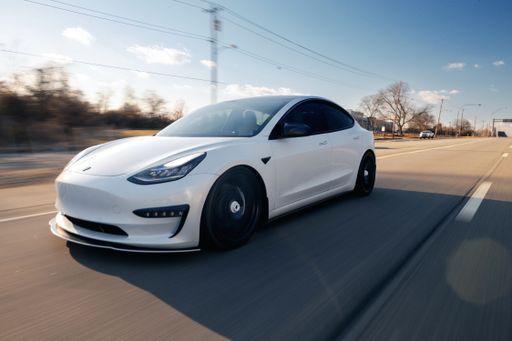Some GM, Ford Models to Lose EV Incentives, Buick and Ford Dealers Refuse to Sell Electric Cars
New Treasury Department regulations coming into effect on January 1, 2024 will result in the loss of federal incentives for certain electric car models. Both General Motors (GM) and Ford have confirmed that some of their models, including the Cadillac LYRIQ and Chevrolet Blazer EV, will temporarily lose eligibility for the clean vehicle credit due to minor components. However, GM has stated that it is working on sourcing plans for qualifying components and will advocate for customers who purchase vehicles built before the new guidelines. On the other hand, some Buick and Ford dealers have decided to opt out of selling electric cars due to the major infrastructure upgrades required, which they claim will be costly. This decision by some dealers may hinder the adoption of electric vehicles.

New Treasury Department Regulations Impact EV Incentives
With new Treasury Department regulations set to take effect on January 1, 2024, several electric car models will no longer be eligible for federal incentives. The regulations tighten the rules for battery materials and components, disqualifying EVs with certain foreign battery content. This means that most EVs will no longer be eligible for incentives starting next year. The Cadillac LYRIQ and Chevrolet Blazer EV are expected to temporarily lose eligibility due to two minor components, separators and electrolytes.
GM spokesperson Liz Winter explained that while they await the final rules, GM is already working on sourcing plans for qualifying components and will advocate for customers who purchase vehicles built before the new guidelines. However, Chevrolet Bolt EVs and EUVs will remain eligible for the clean vehicle credit.
It is essential for automakers to adapt to these new regulations and ensure the eligibility of their EVs for incentives. This includes sourcing qualified components and making necessary changes to production and sourcing plans.
Resistance from Buick and Ford Dealers
While automakers are gearing up to comply with the new regulations, some Buick and Ford dealers have chosen not to sell electric cars due to the cost of the required infrastructure upgrades. These upgrades include specialized training and tools for servicing electric vehicles, as well as the installation of Level 3 chargers. The dealers claim that these upgrades will cost them hundreds of thousands of dollars and are hesitant to make the investment, fearing they will not be able to recoup the costs.
Approximately half of Ford dealerships in the US have decided to stick with selling hybrid and internal combustion engine vehicles only, waiting to see if the investments required for EV sales are worth it. Buick also faced a similar situation, with around half of their dealerships choosing to opt out of the EV revolution. The dealerships that chose not to sell Buick models accounted for about 20% of the brand's sales in the United States. However, Buick remains satisfied with the current size of its network and is confident in the capabilities of its remaining dealers.
The resistance from some dealers to embrace electric cars may hinder the wide-scale adoption of EVs. Customers in areas without dealerships selling EVs may find it more challenging to access and service electric vehicles.
The Impact on Electric Car Sales
The confusion surrounding federal tax credits and the resistance from some dealers to sell electric cars could potentially impact the sales of EVs in the US. Uncertainty about incentives and limited access to dealerships that sell and service EVs may discourage prospective buyers. However, it is important to note that the situation is expected to resolve itself over time as automakers and dealers adapt to the changing landscape.
The decision by some dealers to refrain from selling electric cars may be shortsighted. Electric vehicles are gaining popularity and are likely to dominate the market in the coming years. Dealers who choose not to invest in the necessary infrastructure may miss out on the growing demand for EVs and the associated business opportunities.
Ultimately, the transition to electric cars is inevitable, and it is essential for automakers and dealers to align themselves with this shift in the industry. By expanding the availability of electric cars and ensuring convenient access to sales and service, the adoption of EVs can be accelerated.

